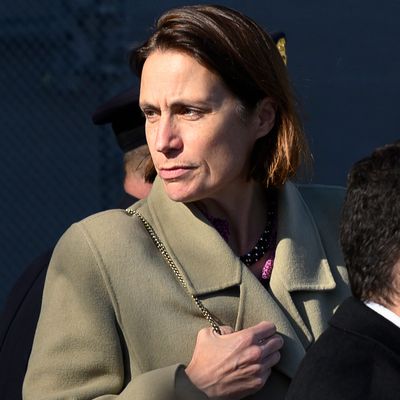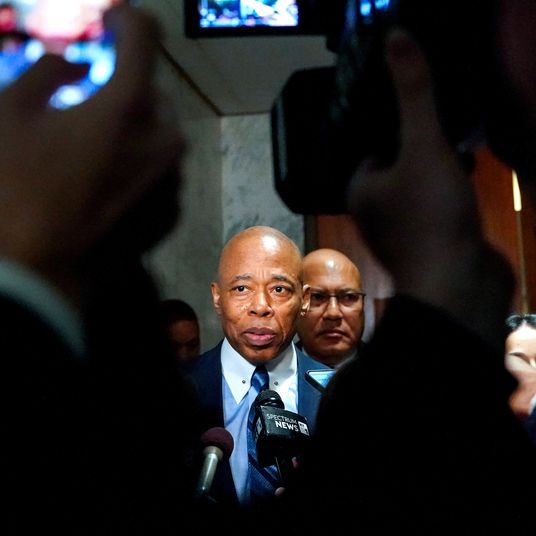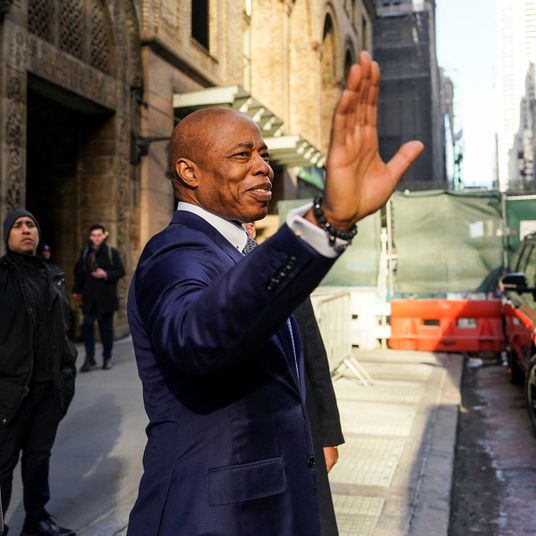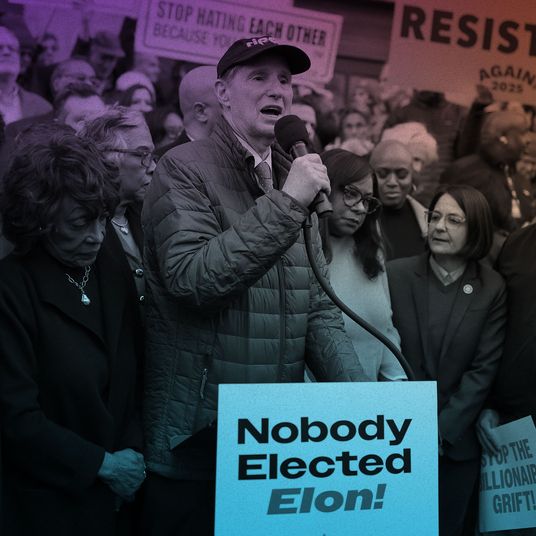
To the outside world, the Ukraine scandal is a straightforward case of a president abusing his foreign policy authority for political gain. To the inside world — and in particular, the cadre of Republican-affiliated intellectuals looking for some justification more persuasive than shouting “witch hunt!” — it is something very different. It is a case of Trump being denied his rightful foreign policy authority by a cabal of deep state bureaucrats.
“Trump’s presidency,” argues Mark Hemingway in the Federalist, “has been unfortunately defined by the emergence of senior government officials who are quite open about demonstrating loyalty to the administrative state, up to and including criminal acts and abuses of power, over the imperatives of a democratically elected president.” Brit Hume complains that a National Security Council official, who testified that Trump subverted U.S. foreign policy, committed a “fallacy.” Actually, writes Hume, “the president is the constitutional author of foreign policy, so the idea he is ‘subverting’ it is illogical.” (Hume’s case was promoted by the Blaze and Donald Trump Jr.).
The general principle that presidents are entitled to some autonomy over foreign policy is certainly a sensible one. However, as a justification for Trump’s actual behavior, this falls woefully short, for several reasons.
First, Trump’s leverage over Ukraine took two forms. He denied President Zelensky a White House meeting, which is in Trump’s purview, but he also withheld military aid, which is not. Military aid for Ukraine had been passed by Congress, and withholding that aid for anything but a strictly limited and well-defined list of reasons is literally illegal.
Second, it is true that a president’s foreign policy should not generally be undermined by unelected bureaucrats. Lt. Col. Alexander Vindman testified that he was alarmed by “outside influencers promoting a false narrative of Ukraine inconsistent with the consensus views of the interagency.” Hemingway seizes upon this phrase as proof Vindman was arrogating to himself decision-making power that belongs to Trump.
But many of the officials alarmed by Trump’s behavior were Trump’s own appointees. Government officials are famously not supposed to simply carry out orders from their superior if those orders are transparently unethical and arguably illegal.
If Trump wanted to change American policy toward Ukraine, the avenue to do so would be working through the foreign policy bureaucracy. Staffers like Vindman were so alarmed precisely because Trump circumvented the process. And the process exists for a reason. The U.S. has a fairly strong security interest in ensuring that its policy is coordinated and clear. The Ukrainians were confused because they were receiving one set of messages from official channels and a very different set of messages from Rudy Giuliani and his goons.
And the U.S. has an extremely strong interest in ensuring its policy is conducted by loyal Americans who are vetted and paid by the U.S. government. Running foreign policy through Trump’s unpaid private lawyer and a pair of crooks who were being funded by Russian oligarchs working on Vladimir Putin’s behalf is a catastrophic failure of process. A bureaucrat who finds that process concerning is doing his job, not getting too big for his britches.
And finally, the principle that a president is “the constitutional author of foreign policy,” proves far too much. The president has an unquestioned role as commander-in-chief on the military. But what if Trump started calling countries and threatened to nuke them immediately unless they transferred a billion dollars into his checking account? Or, on a less hyperbolic scale, what if he promised to send troops to defend a country if it booked a bunch of rooms at his hotel? (The odds that something along these general lines has happened already are fairly strong — the House is investigating charges that two entities, one foreign, booked large blocks of rooms at Trump’s hotels and didn’t even bother using the reservations.)
Congress has ceded to the president wide latitude to conduct U.S. foreign policy. In part, this is a pragmatic design choice, given the difficulty of conducting diplomacy and war through a Congress that acts slowly and has trouble speaking in one voice. The president’s power is not absolute — certainly not in a case where he is using it for transparently improper ends. Before Trump came along, nobody defended the principle that a president is entitled to use foreign policy to pressure foreign countries to open investigations that would make his domestic rivals look bad. For that reason, and that reason only, his supporters are desperately backfilling rationales to explain away his abuse of power.






























